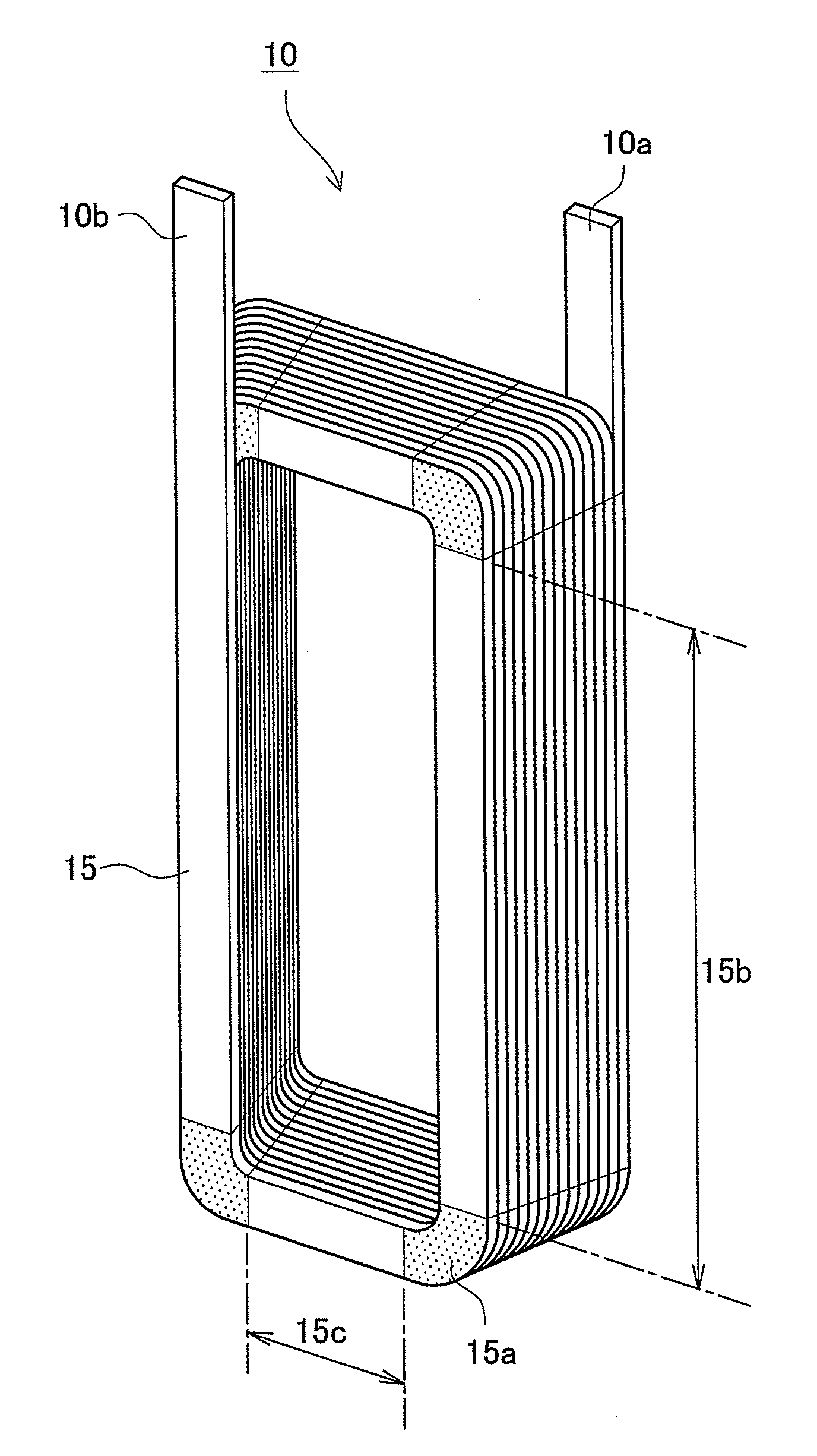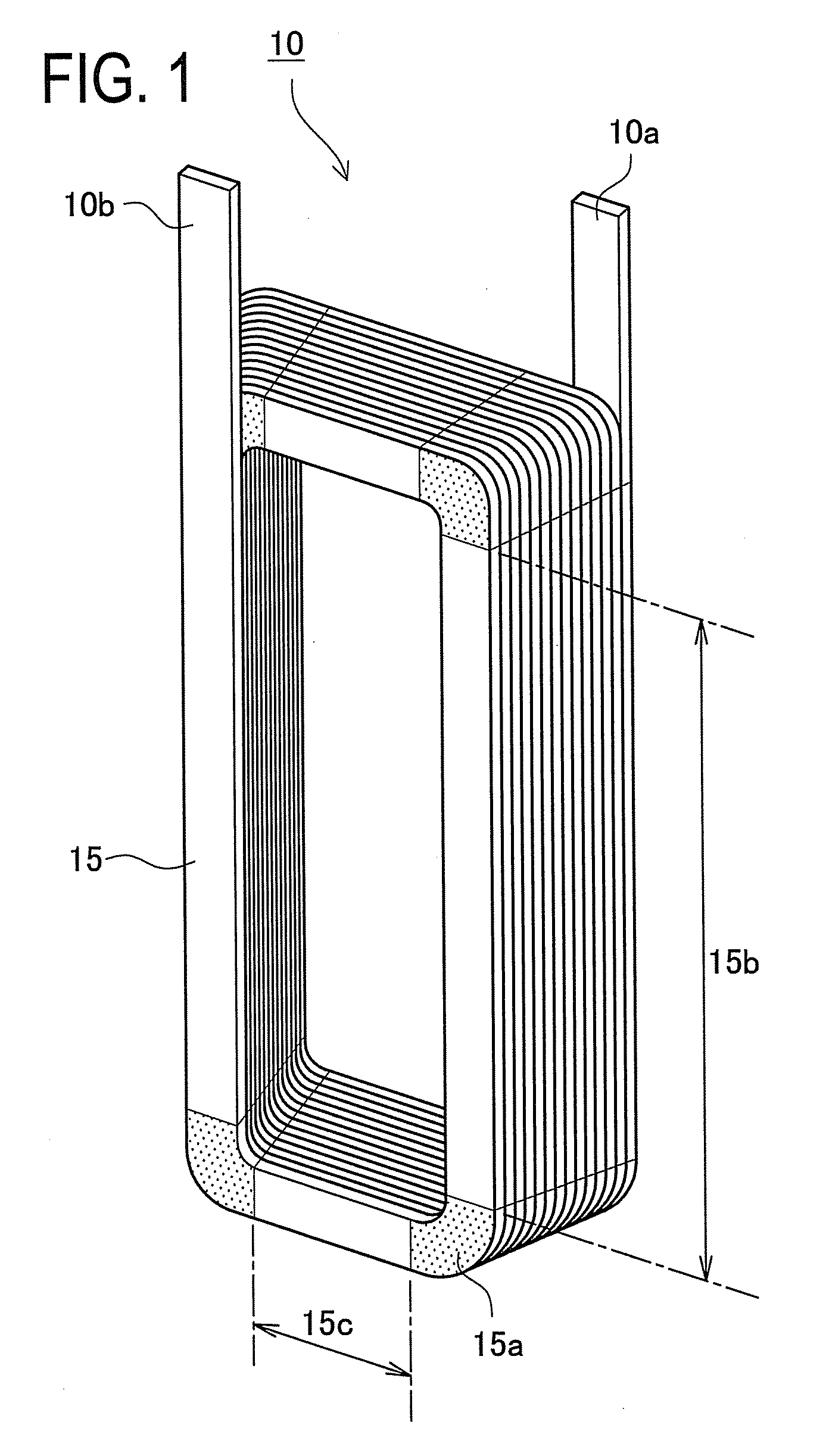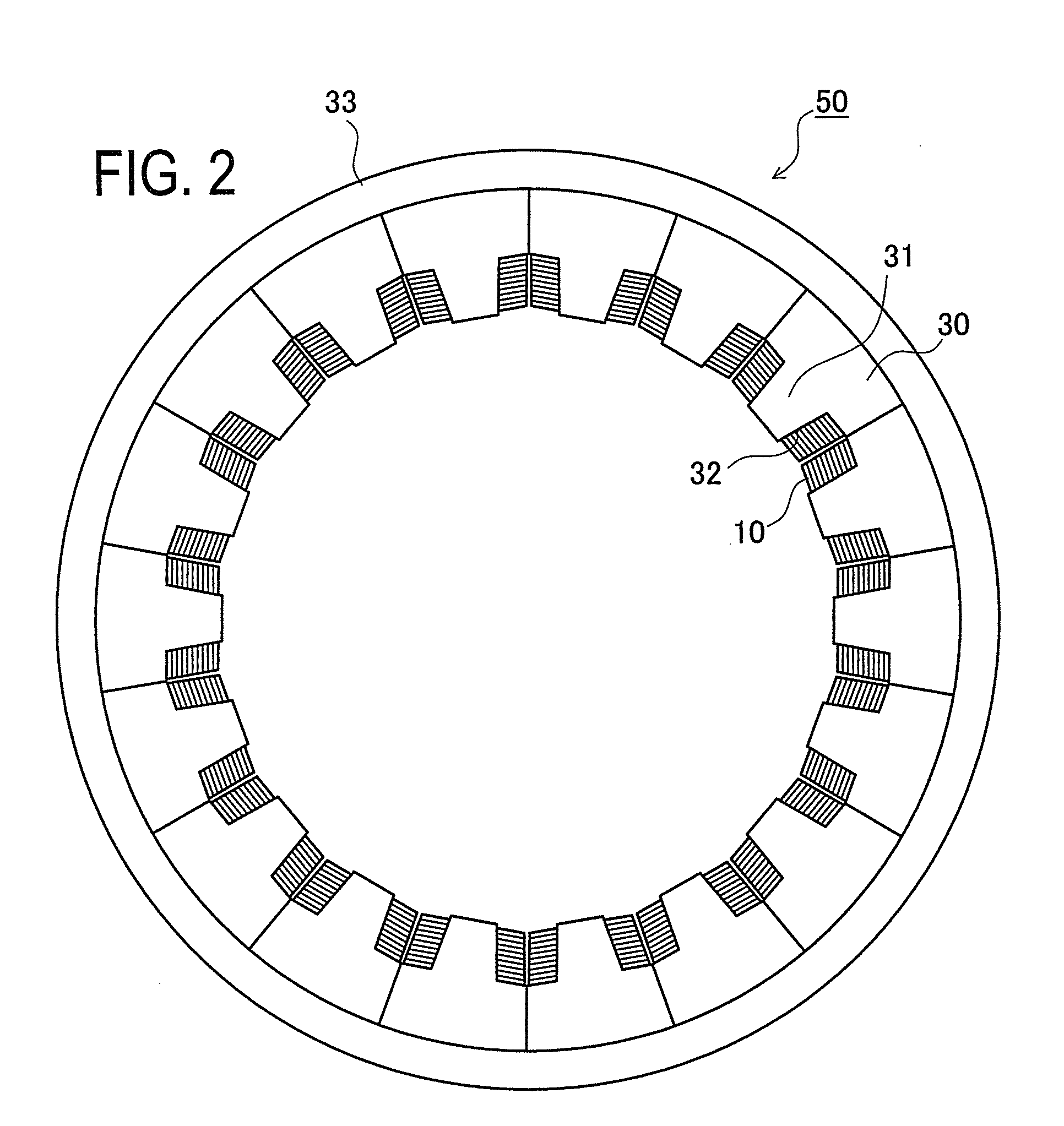Coil production method, coil of motor, and stator of motor
- Summary
- Abstract
- Description
- Claims
- Application Information
AI Technical Summary
Benefits of technology
Problems solved by technology
Method used
Image
Examples
first embodiment
[0093]A detailed description of a first embodiment of the present invention will now be given referring to the accompanying drawings.
[0094]Firstly, the outline of a production process of a stator 50 in the first embodiment is briefly explained.
[0095]FIG. 1 is a perspective view of a coil 10 in a wound state in the first embodiment. FIG. 2 is a cross-sectional view of a stator core 30 with the coil 10 inserted therein. FIG. 3 shows a stator 50 whose coil ends are molded by resin.
[0096]The coil 10 is formed of a rectangular cross-section conductor (“rectangular conductor”) 15 that is spirally wound as shown in FIG. 1 to conform to the outer shape of a tooth 31 provided in the stator core 30. Thus, long sides 15b and short sides 15c are formed so that the short sides 15c are gradually longer from the inner periphery side to the outer periphery side of the stator core 30. The rectangular conductor 15 is made of a good conductive metal, such as copper, formed in a strip shape. The rectan...
second embodiment
[0160]Next, a second embodiment will be described below.
[0161]The second embodiment is substantially the same as the first embodiment excepting the configuration of the deforming mechanism 62. Thus, the deforming mechanism 62 is explained below.
[0162]FIGS. 15A and 15B show the deforming mechanism 62 in the second embodiment; FIG. 15A shows that during rolling and FIG. 15B shows that during wire feeding.
[0163]Deforming rollers 73 are placed above and below the rectangular conductor 15 to form a thickness changed portion 15a in the rectangular conductor 15. As shown in FIG. 15A, during rolling, the deforming rollers 73 are rotated while pressing the rectangular conductor 15 from above and below.
[0164]After the thickness changed portion 15a is formed by the deforming rollers 73, as shown in FIG. 15B, the rollers 73 are retracted to allow the rectangular conductor 15 to be fed by a predetermined distance. The feeding mechanism can feed the rectangular conductor 15 to an arbitral positio...
third embodiment
[0168]Next, a third embodiment will be described below.
[0169]The third embodiment is substantially the same as the first embodiment excepting the configuration of the deforming mechanism 62. Thus, the deforming mechanism 62 is explained below.
[0170]FIGS. 16A and 16B show the deforming mechanism 62 of the third embodiment; FIG. 16A shows that during press and FIG. 16B shows that during wire feeding.
[0171]Presses 75 are placed above and below the rectangular conductor 15 to form a thickness changed portion 15a in the rectangular conductor 15. As shown in FIG. 16A, during rolling, the presses 75 press the rectangular conductor 15 from above and below to form each thickness changed portion 15a.
[0172]After the thickness changed portion 15a is formed by the presses 75, as shown in FIG. 16B, the presses 75 are retracted to allow the rectangular conductor 15 to be fed by a predetermined distance. The feeding mechanism can feed the rectangular conductor 15 to an arbitral position by the fee...
PUM
| Property | Measurement | Unit |
|---|---|---|
| Length | aaaaa | aaaaa |
| Thickness | aaaaa | aaaaa |
Abstract
Description
Claims
Application Information
 Login to View More
Login to View More - R&D
- Intellectual Property
- Life Sciences
- Materials
- Tech Scout
- Unparalleled Data Quality
- Higher Quality Content
- 60% Fewer Hallucinations
Browse by: Latest US Patents, China's latest patents, Technical Efficacy Thesaurus, Application Domain, Technology Topic, Popular Technical Reports.
© 2025 PatSnap. All rights reserved.Legal|Privacy policy|Modern Slavery Act Transparency Statement|Sitemap|About US| Contact US: help@patsnap.com



